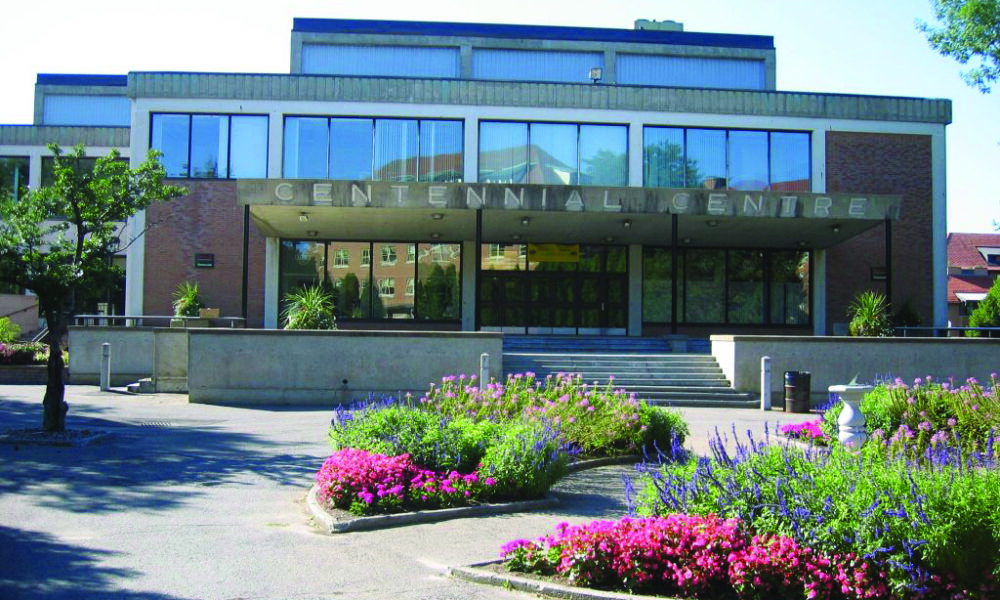Students at McGill’s Macdonald campus cite feeling frightened, isolated, and frustrated following the release of a report detailing the events that led to the asbestos-related closures of three buildings on the Macdonald campus in Winter 2023. The Internal Audit Final Report, which was released on Sept. 18, shows that Quebec regulators intervened on the Macdonald campus three times between 2021 and 2023, deeming that McGill was not properly following asbestos protocols.
For some, such as Hiba Kamel, a third-year Ph.D. student in the Faculty of Agricultural and Environmental Sciences, the administration has broken the trust between herself and the institution.
“I don’t think they care,” Kamel said in an interview with The Tribune. “And I don’t trust that it won’t happen again.”
According to the Final Report, the Raymond Building Phytorium, which contains growth chambers used by multiple plant scientists, was a site of concern for asbestos. In October 2022, the Commission des normes, de l’équité, de la santé et de la sécurité au travail—the body Quebec has entrusted to oversee workplace health and safety—intervened specifically in that area.
Kamel, a researcher in the Plant Science department, often used the growth chambers as a part of her research and recounted seeing and interacting with dust for months. Test results reported on March 14, 2023, revealed that 20 per cent of dust samples from the Raymond building tested positive for asbestos.
As a mother, Kamel told The Tribune that she is scared she may have brought particles home on her clothing and exposed her young daughter. She fears that she may feel the effects of asbestos exposure in decades to come.
Exposure to asbestos can lead to conditions like asbestosis, a chronic lung disease, and mesothelioma, a type of cancer. It can take anywhere from 10 to 40 years for the effects of asbestos exposure to surface.
“When I realized that it was asbestos and I looked it up […] it was horrible. And it’s the kind of horrible that spoils your mood, and you can’t come out of it,” Kamel said. “And sometimes you’ll forget about it for a second. And then you have that horrible feeling in your chest. And you’re like, ‘Why is it that I’m having this feeling? Oh yeah, because I might get cancer in 30 years.’”
For others, the goal is to move on from the situation and focus on the positive—the return to in-person instruction following asbestos-related closures last year.
“There was a little bit of nervousness in the air [when the report came out], knowing that you could have a repeat semester or a repeat year potentially [because] of what happened was kind of disheartening,” Annie Obnowlenny, U2 Science, told The Tribune. “But there’s no point in [expecting] the worst when you don’t even know if the worst will happen [….] A lot of my friends and I are just trying to get through the semester and have fun and do well.”
The Macdonald Campus Students’ Society has been working to provide students with support—including opening The Ceilidh as an additional study space and hosting town halls—since last winter’s closures. In a statement to The Tribune, Vice President (VP) Communications Blake Callan and VP University Affairs Vaishnavi Parey expressed that students on the Macdonald campus feel they should be compensated for the loss of class and lab time last winter.
“They did not try to move us to different classrooms, or give us any compensation for our loss of lab and lecture experience,” Callan and Parey wrote. “We are only here for a short amount of time and the false information about the duration of construction and health issues arising from being there is disappointing to say the least.”
McGill Media Relations Officer Frédérique Mazerolle told The Tribune that staff at the Student Wellness Hub and Keep.MeSAFE have been advised that students affected by asbestos may need support and are “ready to assist.”
In an email to The Tribune, Kamel expressed that she is unsure how many other people are concerned about exposure to asbestos, and feels isolated in her worries.
“I can’t for the life of me be the only one who feels that way. I can’t think that I’m the only person who’s actually scared for their life, and who’s gonna need significant support throughout,” Kamel said in an interview with The Tribune. “I’ll be thinking about this all my life.”








